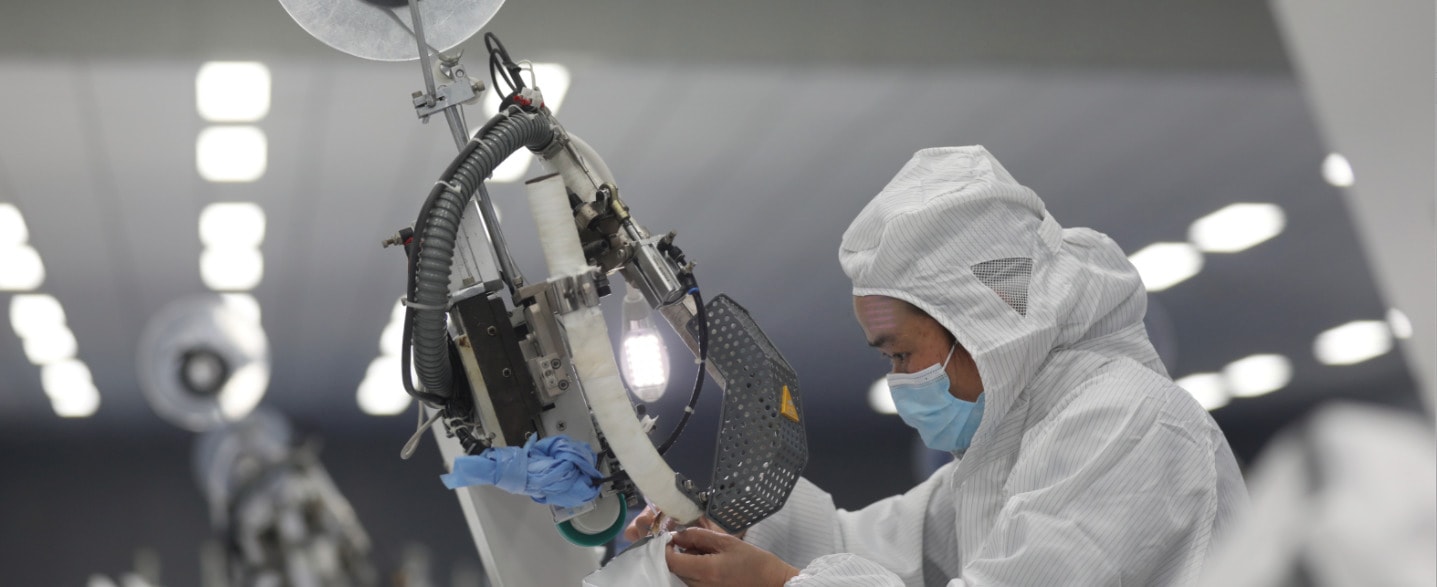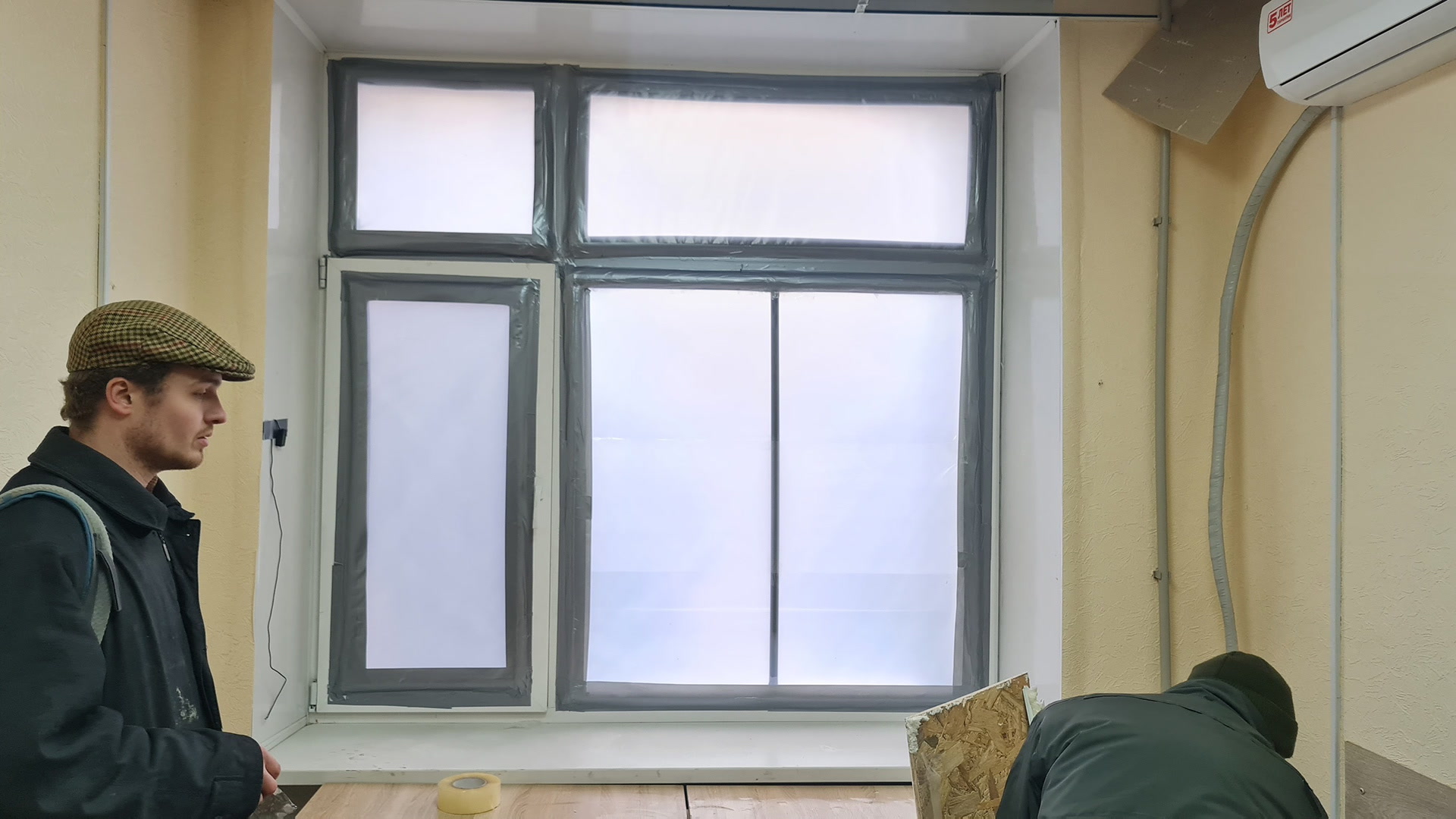
Industry leaders are driving the adoption of advanced manufacturing technologies
132 factories are now engaged in the network, implementing advanced manufacturing technologies and boosting productivity, sustainability and resilient supply chains.
Anticipating how pioneering technologies, innovative business models and new partnerships are transforming businesses and governments’ ability to drive economic and societal impact.
The Platform Shaping the Future of Advanced Manufacturing and Value Chains examines everything from research and development to design, consumer behaviour and end-of-use cycles. We engage multiple industries as diverse as automotive, chemicals, electronics, healthcare and textiles. While manufacturing has been the foremost source of growth, jobs and innovation globally, its sectors also contribute heavily to CO2 emissions and climate change. Emerging technologies, however, are transforming manufacturing and value chains, enabling more efficient processes and creating new value for industry, society and the environment.
This Platform brings together a diverse community of 200+ organizations from more than 22 industry sectors, governments, academic institutions and civil society, to accelerate inclusive technology adoption, while stimulating innovation, sustainability and employment. The community evaluates and proposes pilots, examines the latest approaches in skills development, drives improvements in partnerships and informs business model transformations and next generation industrial development strategies.
Our Platform enables solutions to the greatest challenges facing multiple industries and governments, accelerating the growth of advanced manufacturing while helping stakeholders fulfil their social and environmental responsibility.
Our Partners comprise the world's 1000 leading companies, developing solutions to the world's greatest challenges.
132 factories are now engaged in the network, implementing advanced manufacturing technologies and boosting productivity, sustainability and resilient supply chains.
The Forum, Bain, Ralph Lauren, Vestiaire Collective and EVRYTHNG, have launched a pilot to ensure the authentication of fashion products in second hand markets.
The World Economic Forum is working with manufacturing companies to securely exchange data to help identify and reduce the carbon footprint of the manufacturing industry
The World Economic Forum, in collaboration with Kearney, brought together senior-level executives from various industry sectors to identify the best response to the COVID-19 crisis.
The WEF and the UNDP launched a new Strategic Value Framework to help businesses respond to global supply chain disruptions by significant global trends.
Changing global context is challenging traditional approaches to supply chains Recent global developments are triggering a rethink of global supply chain configurations with important imp...
To learn more or apply to join the lighthouse network, email us at LighthouseNetwork@weforum.org
As organizations in the manufacturing and production ecosystem are rethinking and reimagining their business and operating models to rebuild from covid-19, there is now a window of opport...
What is Additive Manufacturing’s true potential for industry? Is it really poised to transform global manufacturing to drive resilience and enable more distributed and resilient value cha...
MissionAn accelerator for bringing together tomorrow's industry leaders and support them in designing and driving a responsible industry transformation - while getting the world excited a...
Manufacturing industries are on the verge of a data-driven revolution. They collaborate in hyperconnected value networks employing a large variety of data‑and‑analytics applications. Data...
The Fourth Industrial Revolution is transforming the roles of people, technology, and work in industry. While the level of automation on shop floors increases, it is not always effective ...
ContextThe Intergovernmental Panel on Climate Change (IPCC) paints a stark picture for the future of our planet. Upcoming regulations will force companies to act on their commitments to n...
Goal: Support companies and governments in navigating global value chain disruption from mega trends related to climate change, geopolitical tensions and technological innovation to incre...
In order to avert a catastrophic climate disaster, global clean energy investments of approximately $4-5 trillion are required annually by 2030 – a more than threefold increase from exist...
The Circular Transformation of Industries is a cross-industry multi-stakeholder initiative at the World Economic Forum that aims to enable a growing, resilient and sustainable economy thr...
While global mega-trends – including shifting geopolitical and trade alignments, climate change and the emergence of disruptive technologies – affect every corner of the planet, the impac...
By deploying the right intelligent manufacturing technologies such as AI, manufacturers can boost efficiency, improve agility, and enable self-optimizing operations. Yet, only about 9% of...
SIRI: The Smart Industry Readiness IndexThe Smart Industry Readiness Index (SIRI) comprises a suite of frameworks and tools to help manufacturers – regardless of size and industry – start...
With an ever-changing landscape in the global economy, industrial companies are forced to rethink their use of resources and their contribution to economic growth. Circular transformation...
A new chapter of the Fourth Industrial Revolution is under way amid continuing major global disruptions that include soaring energy prices and inflation, talent shortages, supply chain di...
The global economy has entered a new mega-cycle characterized by value chain disruptions, resource competition, and climate change. Leading manufacturers are re-evaluating and fundamental...
The World Economic Forum, in collaboration with the University of Cambridge’s Industrial Innovation Policy Group, and the United Nations Industrial Development Organization, has identifie...
While many companies have started their journey towards achieving net-zero emissions, no company can manage the transformation of its manufacturing facilities and value chains alone if bo...
Artificial intelligence (AI) can enable a new era in the digital transformation journey, offering tremendous potential to transform industries for greater efficiency, sustainability and w...
The Global Network of Advanced Manufacturing Hubs (AMHUBs) is a community of communities representing industry ecosystems from around the world that come together to address the most pres...
This report by the World Economic Forum reveals how to accelerate the biomanufacturing revolution and help us address our gravest challenges
This white paper sheds light on best practices and real-life use cases implemented by the leading manufacturers that co-developed and applied the framework across their facilities.
This white paper highlights four best practices and three real-world case studies to show paths for overcoming the prevalent current challenges of Additive Manufacturing.
This white paper shows how augmentation technologies assist the workforce to create a future of industrial work that is more productive, accessible, inclusive and sustainable.
This paper builds on the previously introduced resiliency compass and presents five distinct profiles of resilience leadership to help manufacturing and supply chain companies confidently...
This World Economic Forum report highlights the finance, technologies and policies required to accelerate the green development of the Belt and Road Initiative.
This White Paper outlines successful case studies from those who have already started to unlock business model innovation through the adoption of advanced manufacturing. It highlights fiv...
This report examines the emerging financial challenges caused by the COVID-19 pandemic as well as the financial support activated within manufacturing.
This paper challenges the notion that environmental responsibility is inherently at odds with productivity and, by extension, profitability.
Leadership teams are facing a pivotal shift. To compete effectively, companies need full visibility throughout their value chains. This paper presents a framework for understanding how tr...
In this fast-evolving context, as global companies adapt their manufacturing and supply chain strategies to build resilience, India has a unique opportunity to become a global manufacturi...
This paper summarizes insights from senior executives and public sector leaders and introduces the resiliency compass, a new framework for organizations to accelerate the resilience-build...
The 2020 Annual Report provides an overview of the Global Network, highlights specific initiatives within these regional ecosystems, and provides insights into the Global Network’s collab...
The Global Lighthouse Network welcomes 15 new lighthouses to an inspiring group of organizations that exhibit the essential characteristics of the Fourth Industrial Revolution.
Manufacturing industries are on the verge of a data-driven revolution – here’s what’s needed to ensure it results in increased productivity, better customer experiences and benefits for s...
The Forum has created the Regional Action Group for Latin America, consisting of a committed group of trusted partners, including the foremost CEOs, public figures, civil society represen...
The World Economic Forum’s Global Lighthouse Network comprises 54 leading companies that have succeeded in the adoption of Fourth Industrial Revolution technology at scale, at individual ...
This briefing document builds on the Regional Action Group’s insights and on the Forum’s Platform for Shaping the Future of Advanced Manufacturing and Production activities, and provides ...
This paper reflects an aggregate of voices from the Global Network of AMHUBs and focuses on COVID-19’s impact in each region; response efforts from manufacturing and governments; and best...
Sinking, swimming or surfing: Perspectives on operating and business models
The World Economic Forum, in collaboration with Kearney, brought together C-level executives from different industry sectors to identify best responses to the current COVID-19 crisis, in ...
While the manufacturing and production sectors comprise 16% of global GDP and are key drivers for economies around the world, the complex network of supply chains on which these sectors r...
To demonstrate the value of data sharing in manufacturing, this white paper examines five main areas where data sharing can help improve manufacturing operations. The paper proposes a fiv...
Over the past years, a leading group of manufacturers have made impressive progress scaling Fourth Industrial Revolution technologies within the manufacturing plant environment. The World...
This White Paper provides guidance on how to deal with business and policy challenges as 3D printing (3DP) might revolutionize the way products are made and may provoke unintended consequ...
Technological advances in manufacturing are transforming factories and enabling a new generation of partnerships and business models to drive sustainable economic growth. But how can comp...
Recent years have seen Michigan’s economy grow consistently, with its manufacturing industry a main driver of this economic prosperity. The automotive sector has long been a cornerstone o...
This White Paper is the product of a joint effort by the Inter-American Development Bank and the World Economic Forum’s System Initiatives on Shaping the Future of Production and Shaping ...
Fourth Industrial Revolution trends are disrupting long-established business models. Growing demand for customized products. Shifts and skill mismatches in production value chains. Digiti...
The World Economic Forum, in collaboration with McKinsey and Company, has identified 16 “Manufacturing Lighthouses”; production sites which are world leaders in the successful adoption an...
The future of manufacturing is at an inflection point. Consumers are demanding personalized products and services, instantly fulfilled. Industry incumbents are racing to adjust to this ne...
The Fourth Industrial Revolution has transformed production industries with breathtaking speed and scale. Driven by macro and industry trends, global production value chains are shifting,...
This white paper serves as a guide for optimizing the benefits of the Fourth Industrial Revolution in production, helping countries and businesses identify ways to transform their product...
After a decade of stagnated productivity, the Fourth Industrial Revolution is expected to create up to $3.7 trillion in value by 2025. Technologies such as the internet of things, advance...
The products that consumers demand, factory processes and footprints, and the management of global supply chains are being re-shaped to an unprecedented degree and at unprecedented pace.
The nature of production is undergoing unprecedented change as new technologies transform cost structures, make new business models and methods of production available, and bring entirely...
The transformative potential of technology in production systems is widely recognized, even while the precise configuration and extent of the possible transformation remain unknown. Produ...






































































